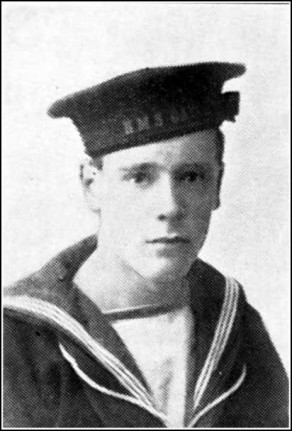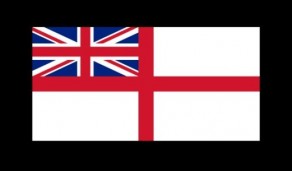04 June 1915
SILSDEN
Silsden’s recruiting figures have advanced fairly rapidly during the past few weeks, and before very long we shall be able to state that four percent, of the population have enlisted in various branches of His Majesty’s Forces. Not since the early stages of the war has there been such a boom in enlistments. This week the names of the following have been accredited as having enlisted:– Edwin Brear and Arthur Brear, who have joined the Royal Engineers at Leeds; John Brear, Wilfred Clarkson, Henry Fort, Harry Watson, Frank Whiteoak, Robert Parkinson, Cecil Fred Brook, and Norman Taylor, the latter having been a teacher at the Hothfield Street Council School. An interesting story has been told concerning one of a party of five who set out for Skipton on Monday morning with the intention of joining the Colours. It appears that the youth in question was still wearing short trousers, and thinking that would be a fatal objection to his chance of acceptance, he perceived an excellent idea of getting over the difficulty. He took with him a pair of trousers belonging to an older person – unknown to anyone at home except himself – and put them on in preference to his younger looking togs before arriving at Skipton. On reaching the Recruiting Office he left his bundle outside in charge of someone. Even after such a determined effort he was not accepted on account of his youth.
20 July 1917
CLARKSON – July 9th 1917, by the sinking of H.M.S. Vanguard, Signaller Wilfred Clarkson, son of Mr. and Mrs. Walter Clarkson, 26, North Street, Silsden, aged 18 years.
20 July 1917
NAVAL DISASTER – SKIPTON AND SILSDEN LADS LOST ON THE VANGUARD
Amongst the sailors accidentally killed in the explosion on the battleship H.M.S. Vanguard were two local lads – Boy, lst Class, Frank Reginald Pollard, of Skipton, and Signaller Wilfred Clarkson of Silsden. The Admiralty report states that the ship blew up whilst at anchor on the night of the 9th inst. (Monday) as the result of an internal explosion. The ship sank immediately, and there were only three survivors among those who were on board the ship at the time of the disaster, viz., one officer and two men, and the officer has since died. There were, however, 24 officers and 71 men not on board the ship at the time, thus bringing the total number of survivors up to 97.
The destruction of the Vanguard registers the first loss of a British battleship of the Dreadnought type which has so far been announced. She no longer belonged to the first line of the Fleet, but her loss is the severest we have suffered since the Battle of Jutland, 13 months ago, and its poignancy is increased by the loss of so many officers and men. Her complement was 724 according to the Naval Annual, and 870 according to ‘Fighting Ships’, but her full war-time crew probably exceeded the higher of those figures.
The Vanguard was provided for under the 1907 programme and built by Messrs. Vickers at Barrow, where she was launched in February 1909, and commissioned in March 1910, for service in the Home Fleet. Her displacement was 19,250 tons, nearly 8,000 less than that of the Queen Mary, lost at Jutland, and she carried an armament of ten 12 in. and eighteen 4 in. guns with three torpedo tubes and a 93 in. armour belt. Her trial speed was over 22 knots and her total cost £1,464,000.
BOY 1st Class F.R. POLLARD, SKIPTON
Mr. and Mrs. Frank Pollard, Skipton, received an intimation from the Admiralty on Friday last that their only son, Boy, 1st Class, Frank Reginald Pollard, had lost his life through the explosion on the Vanguard. Deceased, who had been in the Navy exactly two years on the day of the disaster, was only 17 years of age, and after leaving school worked for a short time as office boy for Mr. W.A. Judge, accountant, Skipton. He received his training at Shotley Training School, and took part in the Jutland Battle, volunteering to do so, but came out of the fighting without a scratch, although he had some very narrow escapes. He was formerly a member of the Brougham Street School Prize Choir and a chorister at the Skipton Parish Church; and trained by Miss Dillingham, he afterwards won a choral scholarship and went to Lichfield Cathedral, where he was in the choir for three and a half years.
Mr. Chas. R. Bailey, schoolmaster at the Choristers’ House, Lichfield, has written a touching letter to the bereaved parents from which we print the following extracts:–“It was a great shock and grief to us to receive the sad news of the death of your dear boy, and I cannot tell you how much we feel for you in your sorrow. We know how greatly you must feel your loss, for he was always a good and true-hearted boy, with a happy and affectionate disposition and always so willing and anxious to please. We will remember his good-humoured smile when his turn came to be ‘chaffed.’ Like the rest of his comrades he had the honour and glory of laying down his life for others–for his country; and so faithfully doing his duty to the end. And that is as he wished–though doubtless they all would greatly have preferred to meet their death in actual combat.”
SIGNALLER W. CLARKSON, SILSDEN
Official information was also received from the Admiralty on Friday afternoon last that Signaller Wilfred Clarkson, son of Mr. and Mrs. Walter Clarkson, 26, North Street, Silsden, and grandson of Mrs. Newman, Castle Street, Skipton, had lost his life on the Vanguard.
Signaller Clarkson is the first Silsden man to lose his life in the naval forces. Although only 18 years of age at the time of his death, he enlisted shortly after the outbreak of war and served nine months in the Duke of Wellington’s West Riding Regiment, being finally discharged on account of his youth.
Possessed of determination to assist his country he enlisted in the Navy, serving his period of training at the Shotley Training School. In his last letter home, which was dated July 9th, he said he had had the pleasure of seeing His Majesty the King during the latter’s inspection of the Fleet. He also said that Jim Walton (another Silsden sailor) and he had had tea together very recently. Prior to enlisting he was a regular attender at the Silsden Primitive Methodist Sunday School and Church, and his loss will be keenly felt. He was formerly employed by the firm of J. Walton, Airedale Shed, Silsden.
27 July 1917
SILSDEN – IN MEMORY OF THE BRAVE
The Rev. J. E. Woodfield, of Farnhill, conducted a special service at the Silsden Primitive Methodist Church on Sunday morning last in memory of Bernard Locker, missing, now reported killed, Wilfred Clarkson, of the Vanguard, and Charles H. Gill, killed in action, all of whom were formerly associated with the above Church and Sunday School.
Mr. Woodfield remarked that there were doubtless many remarks that might be made in reference to the deceased young men, but he would refrain from opening up the great wound. He knew that on behalf of that Church and congregation, Sunday School and town, they tendered their most heartfelt sympathy to the sorrowing relatives, and prayed that they might be definitely sustained and comforted. Reference was also made to persons connected with the Primitive Methodist Church who had died since the last memorial service, namely Sam Fort, Edwin Kirkham, John Tillotson, George Horn, Clement Crane, and Ann Mawson. During the service the organist played ‘O rest in the Lord’ and the Dead March in ‘Saul’.
On Sunday evening the Rev. Robertson Ballard (Wesleyan minister) occupied the pulpit and preached a sermon from the words, “Why does God not stop the war?” During the service, Miss Elsie Clarkson, contralto, contributed the solo, ‘The Better Land’.








No comments yet.